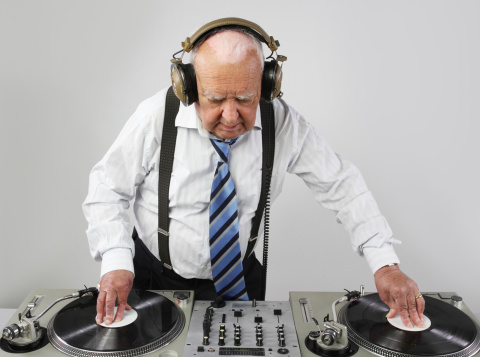Music is a truly powerful thing. It can make you feel happy, sad, angry, excited, heartbroken, enamored and virtually any other emotion capable of being felt by humans. It can be medicine for your soul, spirit and mind, with benefits ranging from memory improvement among older adults to drastic stress relief and much more. In fact, research has found that listening to music can:
- Reduce pain, anxiety and blood pressure.
- Improve mood, memory, sleep quality and mental alertness (especially for those living with dementia or other forms of memory impairment).
Moreover, benefits of listening to music for seniors living with dementia include:
- Improved mood, speech, balance, attention, cognition, motor skills, executive functioning and short-term and working memory.
- Enhanced quality of life.
- Less difficulty remaining oriented in time and place.
It’s clear that listening to/playing music, singing and dancing can have a number of benefits for seniors and young adults alike. While there’s still so much to learn in terms of how, specifically, music can shape and strengthen the brain throughout all stages of life, music is extremely beneficial for the mind, body and soul.
Taking Brain Stimulation a Step Further
While science has shown time and again just how beneficial listening to music can be for the human brain, especially as we grow older, physically playing an instrument is an even better workout for your brain. In one recent study, 13 older adults were given piano lessons, after which their memory, attention and problem-solving skills noticeably improved, as did their overall mood and quality of life. You don’t need to become the next Mozart, just taking a few lessons will provide a healthy workout for your brain.
Here are three additional, scientifically-backed ways to maximize the benefits music can have on your brain and quality of life:
- Test your recall. If there are specific memories you’d like to remember with more detail and clarity, try reaching for music that’s not just familiar, but originates from the same time period as the memories you want to strengthen. Doing so can help take you back to that time and make it easier to remember details with more clarity.
- Listen to what you prefer. It’s important to keep in mind that no two people’s taste in music – or virtually anything else in life – is exactly alike. That said, it’s important to be mindful of how you feel and react to different types of music, and listen to the music that work best for you. Don’t force yourself to listen to something you don’t enjoy just because you think you should like it, and don’t avoid listening to music you do like just because it may not be popular or deemed “normal” for an older adult.
- Try listening to something new. Humans are creatures of habit, so it makes perfect sense that more often than not, when listening to music we tend to play tunes we already know and love. While this is perfectly fine and normal, and can still benefit your brain, it’s also beneficial to try listening to something new. Give the music your kids and grandchildren are listening to a shot; it may be unfamiliar at first, but you may find that you like different genres that you wouldn’t have listened to otherwise. Listening to something new may also challenge your brain to comprehend this new sound, thereby keeping it fitter, stronger and healthier.
Music Therapy in Georgia
There’s never been a better time to embark on a musical journey than right now, and for those in the greater Atlanta area, A.G. Rhodes provides just the program you or a senior loved one are looking for: music therapy. To view local news coverage of our innovative music therapy program and how the power of music has helped seniors throughout Georgia recover cherished memories, click here. For more information about A.G. Rhodes or to schedule a tour of one of our three nursing homes and rehab facilities, contact us online today.


